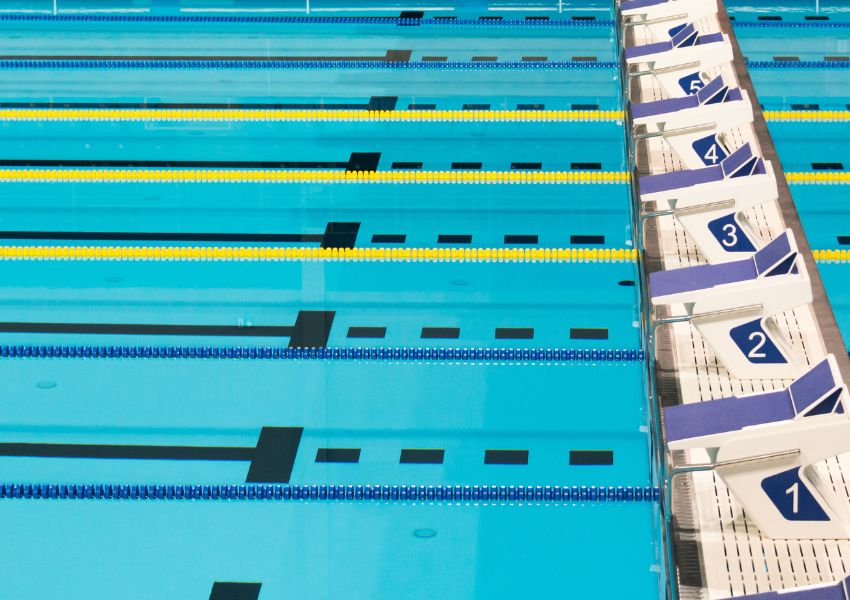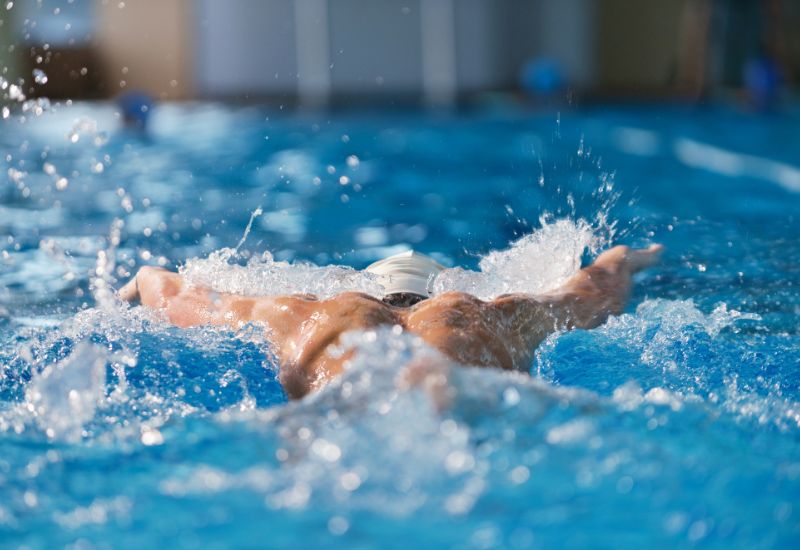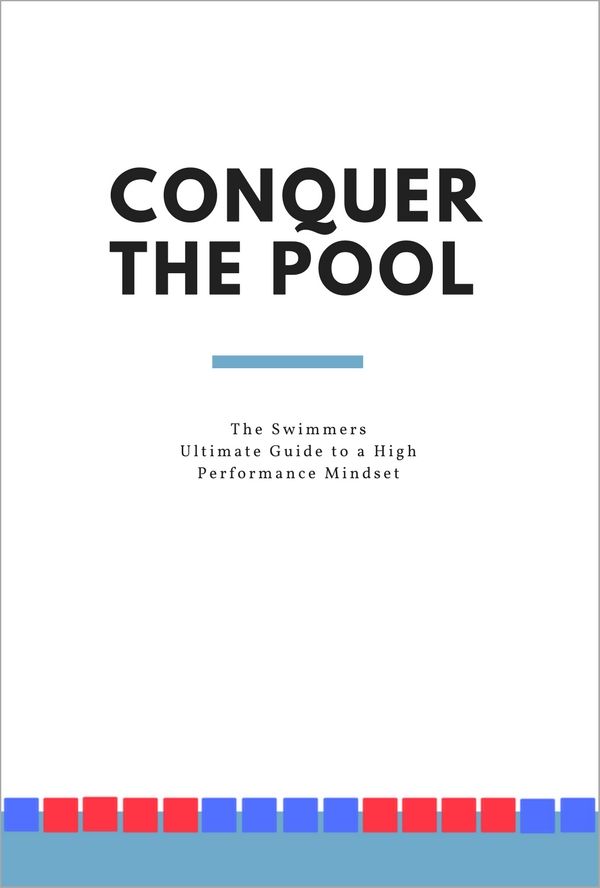The hard work has been completed in practice. Now it’s time to put it all together on race day. Here are some proven strategies for executing under pressure.
At the recent NCAA women’s championships, Kate Douglass of the University of Virginia swam one of the biggest races in NCAA history.
And I mean real big.
In the 200-yard individual medley, she swam a blistering 1:48.37, obliterating the NCAA record of 1:50.08, formerly held by her teammate Alex Walsh.
The University of Virginia women would go on to win the meet, their third title in a row.
Following the meet, head coach Todd DeSorbo spoke with SwimSwam, reflecting on the performance of his swimmers.
The week prior to NCAA’s, Douglass had been doing an IM practice—a kind of swim workout she doesn’t and thereby rarely did—and was putting up times fast enough to lead DeSorbo to turn to the coaching staff and say, “She’s going to go 1:48.”
But, as we all know, there are times when we swim super fast in practice but struggle to put it together on race day.
Something that Desorbo notes.
“When you see them do what they do in everyday practice, it’s like, okay, I know you can go that fast,” said Desorbo. “But you have to put it together and execute it… especially in the most high-pressure situation that there is.”
It’s one thing to swim like a boss in the relative safety and comfort of practice.
It’s another to execute under the bright lights.
Here are some tips for how you can put together the race of your dreams after you’ve put in the work in practice.
Compete more often
For many swimmers, practice is where they excel, because there is much less pressure than swim meets.
They are free to challenge themselves, have the right self-talk, and can overcome the hard sets with a positive outlook.
But when the pressure gets turned up, they crumple as they are unaccustomed to swimming well with the added pressure.
For this swimmer—compete, compete, compete!
Use training to crank up the competition “reps” so that when swim meets come around, you will be better prepared for the sudden increase in performance anxiety and pressure.
While you cannot perfectly replicate the churning belly, excitement, and level 10 hype of a swim meet, you should replicate competition as much as possible.
Timed swims. Get-out swims. Suit-up Saturdays. Racing your teammates. Racing your in-practice bests.
Sharpen your competitive chops every chance you get. It is called competitive swimming, after all.
Automate your performance
When swimmers drop some mind-bending performance, commentators often say that they “rose to the occasion.”
Which is not totally accurate.
What happened is that they tapped the upper limits of their preparation.
The mythology of the overperforming swim can give swimmers the wrong impression about how to prepare, often leading them to *hope” for that magical taper or lucky swim that will give them a swim that outperforms their training.
But it doesn’t work this way.
Your swims on race day reflect the work you did in training.
And you can tap into the full inventory of your hard work by automating as many of the little details as possible.
Things like how you finish (see also: Katie Ledecky: Train the Way You Want to Win). The streamlines. The breakouts.
One of the common things that happen with elite swimmers is that they are able to auto-pilot the details on race day.
And that starts by making the details a consistent habit in training.
Use training as preparation for competition
Don’t just train to be a better practice swimmer—the goal of practice is to build a performance that you can unleash in competition!
Often swimmers fall into the mindset of solely surviving practice. Which I can get—when you are swimming 7-9x a week, the focus tends to drift on simply getting through the door of the next swim practice.
But each practice is preparation for competititon, and you should treat each session in the water as such.
When coach is writing up the workout, instead of thinking about how you are going to survive the workout, consider how you are going to leverage this session of training for your goals on race day.
Switch from a “practice for practice” mindset to a “practice for competition” mindset.
Rehearse overcoming adversity
Swim meets, as every swimmer, parent, and coach knows, are messy and soggy affair.
There is a lot going on, with sessions running late, warm-ups being super crowded, and competitors putting up out-of-the-blue times that leave your confidence feeling shaken.
Through this, it’s your job to remain focused on nailing your routine and race strategy.
This means understanding and preparing for adversity.
Visualization is a great tool to deploy for this. In the weeks leading up to your race, imagine you swimming your best race, even while things go wrong around you.
You crank your heel on the bulkhead while doing a flip-turn (ouch). A competitor blitzes out to an early lead. The warm-up doesn’t go smoothly.
The exact adversity you experience on race day is impossible to predict. But we aren’t trying to see the future, but rather, help you stay in the present when things go south.
You can prepare for adversity by rehearsing yourself persevering.
Visualize yourself pushing through, undaunted, in different “uh oh” situations, and it will help prepare you for the surge of panic and doubt when something inevitably does go wrong.
Embrace the excitement
Lastly, racing and swim meets should be fun.
I know, that sounds counter-intuitive, but elite swimmers understand that the butterflies and stress of competition are to be framed properly as excitement and are something they can use.
For the swimmer who cannot execute on race day, who struggles to put it all together, they frame the nerves as something to be overcome or conquered. Not so.
The nerves are fuel.
Ride the nerves for heightened focus and energy to power your way to lightning-fast times in the water.
The Bottom Line
Performing under pressure can feel like more like art than science. It’s why some swimmers stick so hard to routines and rituals, whether it’s wiping the inside of their swim goggles a set number of times before getting on the blocks, a specific pre-race meal, r
But there are some proven strategies you can use in training and on race day to help ensure that the time on the clock reflects the work you did in training.
Choose a couple of them from this list, start using them in practice, and swim your way to some new PB’s.
 Mental Training for Swimmers (FINALLY) Made Simple
Mental Training for Swimmers (FINALLY) Made Simple
Whether you are tired of choking on race day, want to finally conquer your mindset so that you can give your PB’s the beating they deserve, or want to develop a killer game plan for your mindset, Conquer the Pool is your ticket to faster swimming.
“This is the best book I’ve ever seen concerning mental training.” — Ray Benecki, Head Coach, the FISH Swim Team
Used and trusted by some of the top clubs and swimmers on the planet and written with the feedback of 200+ head coaches, Olympians, former world record holders, and NCAA champions.



 Mental Training for Swimmers (FINALLY) Made Simple
Mental Training for Swimmers (FINALLY) Made Simple











